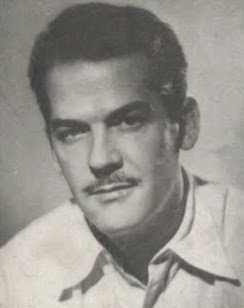Yet another gloriously sunny September weekend, I spent most of it stacking firewood in preparation for winter. The high point came early Saturday morning when I found myself in Ottawa's ByWard Market with an hour to kill. It was so early, that Patrick McGahern Books hadn't yet opened, and so I made for Parliament Hill to see how the restoration of the Centre Block is progressing.
Quite well, it seems.
Despite the early hour, there were swarms of tourists from the United Kingdom and China... but then it was noon in London and early evening in Shanghai.
It had been nearly twenty-four years since I'd walked around the building. The last time was on Sunday, October 1, 2000, when Pierre Elliott Trudeau's body lay in state in the Centre Block's Hall of Honour. I was there with my birth parents, both staunch Liberals. Here I am waiting in the eight-hour line with my birth mother; I have no idea as to the identity of the man in the turquoise cap:
Enough nostalgia.
See it?
It's not a good photo, but I remind that Saturday was gloriously sunny. I took a better snap of this plaque, which I'd never seen before:
 |
| cliquez pour agandir |
I knew just where to find it.
The deaths of Henry Harper and Bessie Blair shook the national's capital, in part because the young lady's father, Andrew George Blair, was the Minister of Railways and Canals. The statue was funded by public donations. Inspiration was drawn from a reproduction of George Frederic Watts' 'Sir Galahad,' which Harper had placed above his desk.
To this Canadian, 'A Canadian Galahad,' a statue inspired by a painting, is forever linked with verse. Within days of the tragedy, William Wilfred Campbell, who had a mutual friend in King, wrote a tribute to the doomed hero. This version comes from The Collected Poems of Wilfred Campbell (Toronto: Briggs, 1905):
We crown the splendours of immortal peace,And laud the heroes of ensanguined war.Rearing in granite memory of menWho build the future, recreate the past.Or animate the present dull world's pulseWith loftier riches of the human mind.But his was greatness not of common mould,And yet so human in its simple worth,That any spirit plodding its slow roundOf social commonplace and daily moil.Might blunder on such greatness, did he holdIn him the kernel sap from which it sprung.Men in rare hours great actions may perform,Heroic, lofty, whereof earth will ring,A world onlooking, and the spirit strungTo high achievement, at the cannon's mouth.Or where fierce ranks of maddened men go down.But this was godlier. In the common roundOf life's slow action, stumbling on the brinkOf sudden opportunity, he choseThe only noble, godlike, splendid way.And made his exit, as earth's great have gone,By that vast doorway looking out on death.No poet this of winged, immortal pen;No hero of an hundred victories;Nor iron moulder of unwieldy states.Grave counsellor of parliaments, gold-tongued.Standing in shadow of a centuried fame.Drinking the splendid plaudits of a world.But simple, unrecorded in his days,Unostentatious, like the average manOf average duty, walked the common earth.And when fate flung her challenge in his face.Took all his spirit in his blinded eyes.And showed in action why God made the world.He passes as all pass, both small and great,Oblivion-clouded, to the common goal; —And all unmindful moves the dull world round.With baser dreams of this material day.And all that makes man petty, the slow paceOf small accomplishment that mocks the soul.But he hath taught us by this splendid deed,That under all the brutish mask of life
And dulled intention of ignoble ends,
Man's soul is not all sordid; that behindThis tragedy of ills and hates that seem,There lurks a godlike impulse in the world,And men are greater than they idly dream.









































